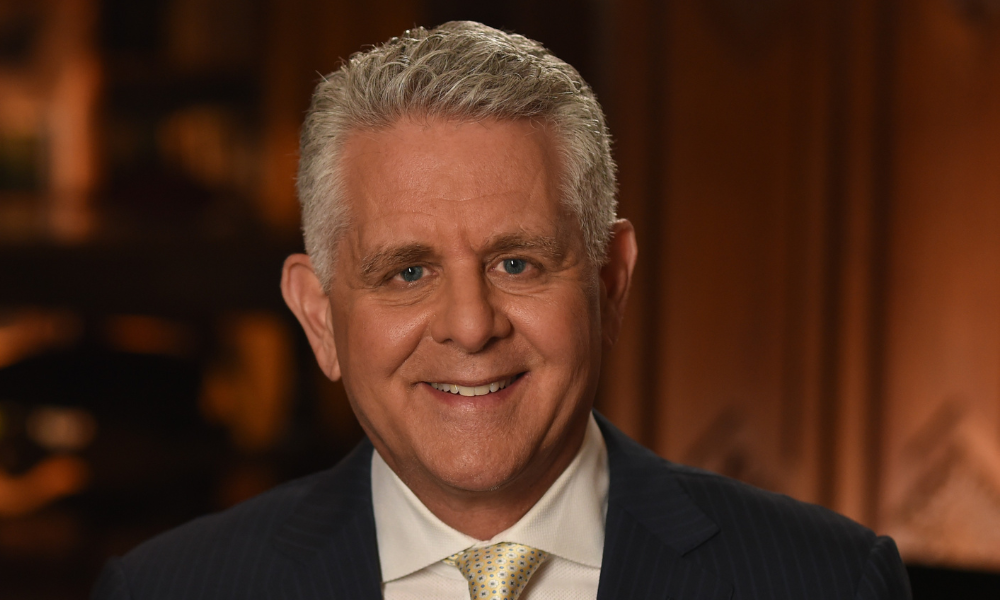

‘There's no evidence that a smart stock picker running a mutual fund will be able to outperform the benchmark consistently over many years.’
For Mitchell Tuchman, countering the allure of risky and high-fee mutual funds from investors is a never-ending challenge.
But Tuchman’s deep faith in low-cost index investing allows him reign in clients’ urges to outguess the market, particularly in a moment of elevated market uncertainty.
“There's no evidence that a smart stock picker running a mutual fund will be able to outperform the benchmark consistently over many years,” said Tuchman, managing director and CIO of Rebalance 360. “The fees are too high, and also the markets have become super-efficient.”
He points to A Random Walk Down Wall Street author Burton Malkiel, who worked alongside Vanguard’s Jack Bogle to pioneer index investing, suggesting Bogle and Malkiel’s thesis still holds, particularly within the current market outlook.
“Burt figured out in the mid-70s that if there was such a thing called an index fund, it would do better than all of the mutual funds on Wall Street,” he said. “That could not be more true today.”
For decades, advisors built their careers on stock picking and market timing. Tuchman suggests the industry has evolved, forcing advisors like himself to lean into the interpersonal skills that provide clear guidance for investors.
“The skills required to become a CFA are not important in the current world of a financial advisor,” Tuchman says. “You have to build and manage portfolios that basically capture the market returns.”
As clients inevitably panic over volatile market trends, Tuchman says the ability to demonstrate a clear strategy to counter uncertainty is where his value as an advisor is proven.
“I literally got an email on Saturday morning from a client who wants to go to cash because she's worried about the announced tariffs that Trump had just put together,” he says. “She cannot imagine a world that’s going to be sane in the next few years, her opinion. So she wants out. And my job is to talk her out of doing that.”
Tuchman views novel and flashy trends such as equal-weighted indexing with extreme skepticism.
“The S&P 500 divided by 500 in equal weight? Well, you wouldn’t have caught Nvidia with that?” he says. “You just don’t catch certain things.”
Stress-testing potential market scenario is another key aspect of Tuchman’s strategy, and allows him to demonstrate to clients the potential risks of straying too far from low-cost indexing.
“We believe we have a great process with market cap-weighted global index portfolios that have very low fees,” he says. “In the financial planning process, we do the Monte Carlo simulations, and we stress test portfolios against all kinds of market conditions.”

While industry statistics pointing to a succession crisis can cause alarm, advisor-owners should be free to consider a middle path between staying solo and catching the surging wave of M&A.

New joint research by T. Rowe Price, MIT, and Stanford University finds more diverse asset allocations among older participants.

With its asset pipeline bursting past $13 billion, Farther is looking to build more momentum with three new managing directors.

A Department of Labor proposal to scrap a regulatory provision under ERISA could create uncertainty for fiduciaries, the trade association argues.

"We continue to feel confident about our ability to capture 90%," LPL CEO Rich Steinmeier told analysts during the firm's 2nd quarter earnings call.
Orion's Tom Wilson on delivering coordinated, high-touch service in a world where returns alone no longer set you apart.
Barely a decade old, registered index-linked annuities have quickly surged in popularity, thanks to their unique blend of protection and growth potential—an appealing option for investors looking to chart a steadier course through today's choppy market waters, says Myles Lambert, Brighthouse Financial.
